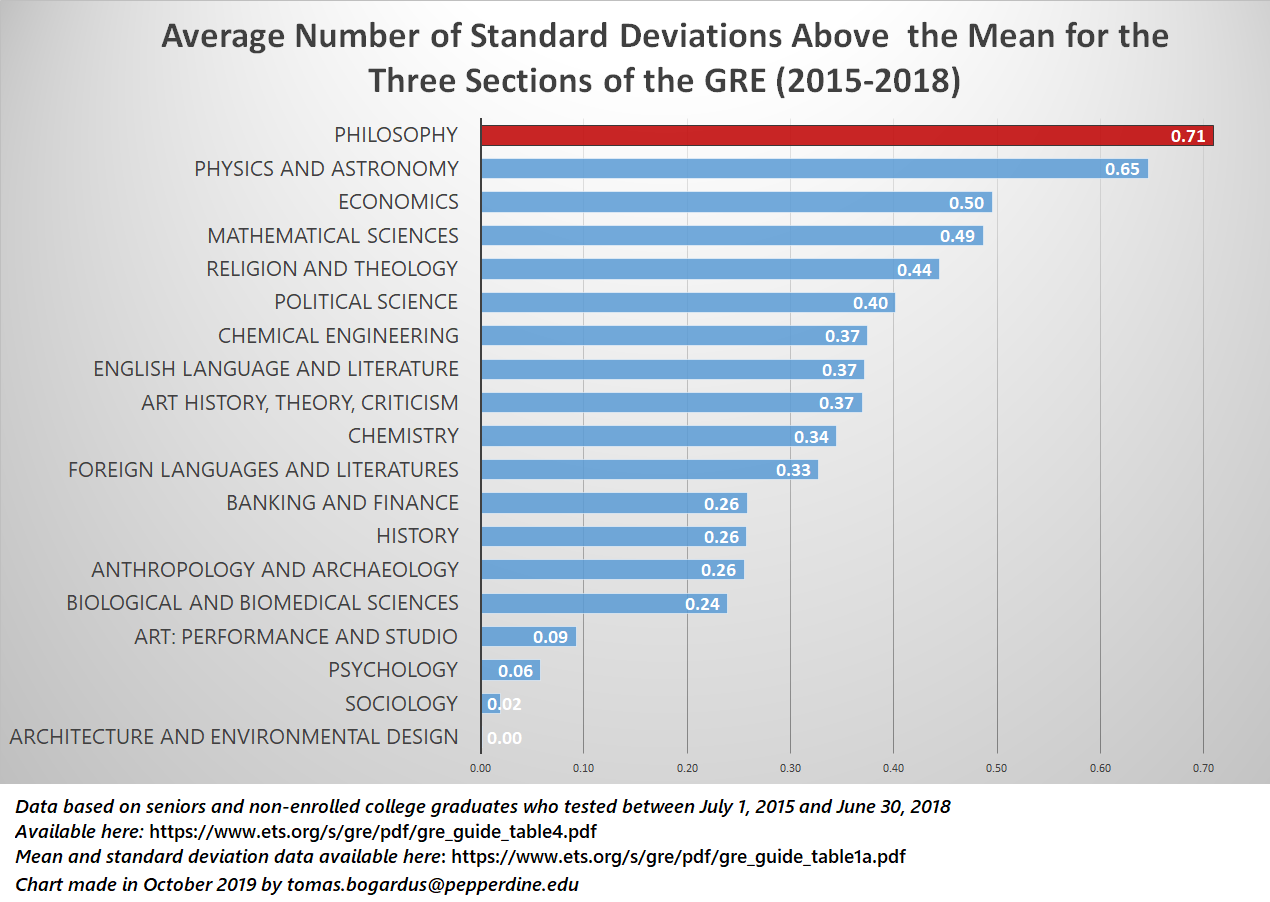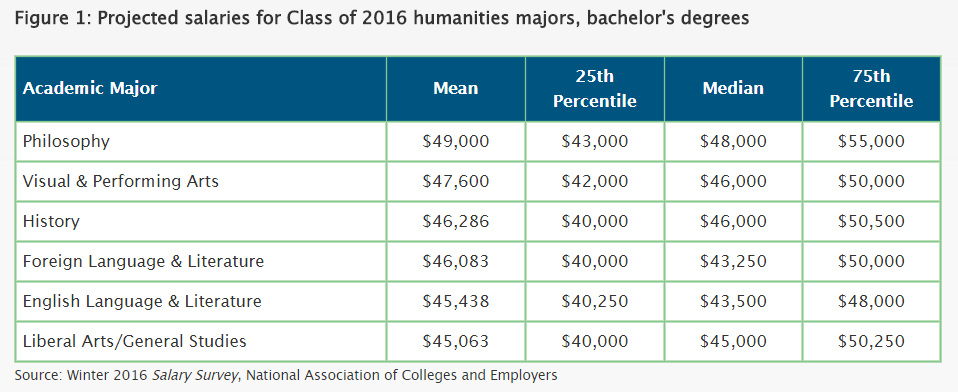

Thinking about picking up a major or minor in Philosophy? Good Idea!
• Editorial Note:
I recall well that even if you are attracted to philosophy for the
sorts of timeless intellectual reasons that Bertrand
Russell
pointed to a century ago, it is not always obvious
what you can do with a degree in philosophy after you graduate. This is
worth thinking about! And so here is a thought: what philosophy has going for it, and
perhaps going for it more than any other area of study, is its flexibility, its
adaptability, and the scope of its usefulness.
How's that? Well, as many articles below point out, while there might not be a single, obvious career path associated with philosophy, this by no means indicates that there aren't any at all. Rather, there is no *one* clear way to go with a philosophy degree because there are *so many* ways to go. The very misleading appearance that philosophy isn't useful for a career is largely a function of the fact that there is not just a *single* type of thing you can do having studied philosophy, no well beaten path to one or two specific jobs. Rather, the analytic writing, problem solving, and critical reasoning abilities that are honed razor sharp doing philosophy are essential to an enormous range of careers, and are useful and valuable in virtually any context and for all kinds of 'gigs'. As lots of these articles also point out, employers from all over the spectrum have already come to appreciate this fact - and those that haven't are quickly getting on board. So, when someone asks you that question: "Philosophy - what are you going to do with that?" there's actually a lot to say in response!
By the way, I also remember well that it can be difficult to justify picking up a philosophy major (or minor) to practical minded parents who are unfamiliar with the subject. This can be especially if true if those parents are helping foot the college bill, and have trouble seeing philosophy's worth or do not yet understand its genuine concrete benefits. Some of the links here talk about philosophy and its practical virtues in a way that can help alleviate these kinds of concerns and reassure worried parents. - DRK
• Check out Purdue College of Liberal Arts Degree+ program, which is excellent. It's basically an administrative hack that allows you to pick up a secondary major in philosophy to go with your primary major, and not have to satsify any other College of Liberal Arts requirements (like, for instance, the language requirement.) This makes it significantly easier to do two majors where each major is housed in a different college. And so easier to get yourself some of that sweet, sweet high test score action! (For a fuller discussion of the graph about test scores on the top of this page, see here.
• Best Majors for GRE Scores? Philosophy dominates. Philosophy majors have a well established record of strong showing: 2016, 2014, 2013, and 2012; check out the graph below this bulletpoint (and discussed in more detail here) that breaks the 2012 numbers down by Verbal/Quantitative/Analytic Writing. Also note that this is just the most recent instance of a long standing trend of correlation between majoring in philosophy and performing well on a range of important standardized tests, including the GRE, GMAT and LSAT.

• The National Association of Colleges and Employers projects that philosophy majors are projected to be the top-paid Class of 2016 humanities graduates at the bachelor's degree level:

• Those with philosophy degrees were ranked dead last in one important job related category: unemployment. Of the 34 different kinds of majors compared in this recent report, philosophy majors came in 34th with only a 5% unemployment rate. Put in more positive terms: in this study, those with a philosophy degree were more likely to have a job than those with any other degree.
• The upshot of the previous bulletpoint about employability is a not a coincidence - with automationpositioned to bring with it enormous shifts in the economy and the kinds of skills required by employers, philosophy is well positioned to provide you with the kind of flexible and widely applicable intellectual proficiencies that will be needed in an increasingly large variety of professions and careers. In a recent article in Time Magazine, tech entrepreneur and billionaire Mark Cuban agreed: "So a new skill will become more in-demand than it ever has been creative thinking "I personally think there's going to be a greater demand in 10 years for liberal arts majors than there were for programming majors and maybe even engineering," he said. "When the data is all being spit out for you for you, options are being spit out for you, you need a different perspective in order to have a different view of the data." In particular, experts in philosophy or foreign languages will ultimately command the most interest from employers in the next decade, Cuban said."
• The Wall Street Journal on why, now more than ever, the world needs philosophy and big ideas.
• A good article and accompanying video addressing the question What does philosophy actually do? and discussing why it's worth studying that hits some good notes: "the study of philosophy cultivates a healthy scepticism ... teaches one to detect ‘higher forms of nonsense’, to identify humbug, to weed out hypocrisy, and to spot invalid reasoning ... teaches us to raise questions about questions, to probe for their tacit assumptions and presuppositions, and to challenge these when warranted. In this way it gives us a distance from passion-provoking issues – a degree of detachment that is conducive to reason and reasonableness."
• A recent article in The Atlantic about the future earning power of students who have an BA in philosophy, which is probably much greater than you might expect. From the article: ""We hear again and again that employers value creative problem solving and the ability to deal with ambiguity in their new hires, and I can't think of another major that would better prepare you with those skills than the study of philosophy. ... Experts say that while philosophy majors might not come out of college with the skill-set that business majors have, they have creative problem solving abilities that sets them apart."
• Yahoo Finance also reports that by mid career a person with a philosophy degree is likely to earn more than a person with an accounting degree, and that philosophy degrees also have the highest earning power of the humanities. Philosophy recently came in 49th of the 207 ranked majors.
• An informative article that discusses what past philosophy majors from Purdue have gone on to do with their degrees, as well as some other benefits of studying philosophy, published in Purdue CLA's THINK Magazine.
• An article in the The Washington Post arguing Why kids — now more than ever — need to learn philosophy.
• An article in the Harvard Business Review explaining How Philosophy Makes You A Better Leader.
• In a similar vein, this Slate article Be employable, study philosophy lays out how "The discipline teaches you how to think clearly, a gift that can be applied to just about any line of work".
• An article in which people in the military explain Why Air Force Cadets Ought to Study Philosophy.
• A very nicely done poster of famous people who were philosophy majors or minors put together by Catherine Nolan, a philosophy graduate student at SUNY Buffalo.
• Famous philosophy majors and the wide variety of careers at which they've succeeded, including 9 famous business executives.
• An article in The Huffington Post about the unexpected way philosophy majors are changing the world of business.
• A short article in The Denver Post arguing that philosophy prepares you for a variety of different career paths.
• A short article in The Atlantic arguing that philosophy might be, surprisingly, the most practical major.
• Want a successful career in technology? Study philosophy, recommends google's Damon Horowitz.
• Best Undergrad College Degrees By Salary (circa 2008); not too shabby.
• Philosophy is Back in Business, an article singing the praises of a philosophy degree published in Business Week, of all places.
• An article in Harper's, written by the founder of a consulting firm, arguing that if you want to succeed (even in business), don't get an M.B.A., rather study philosophy.
• An article in The Guardian, entitled "I think, therefore I earn" with some answers to the question, "A philosophy major? What are you gonna do with that?".
• Get information on Purdue's course requirements for a major or minor degree in philosophy here.
• Get information on the Purdue Undergraduate Philosophy Society here and here.